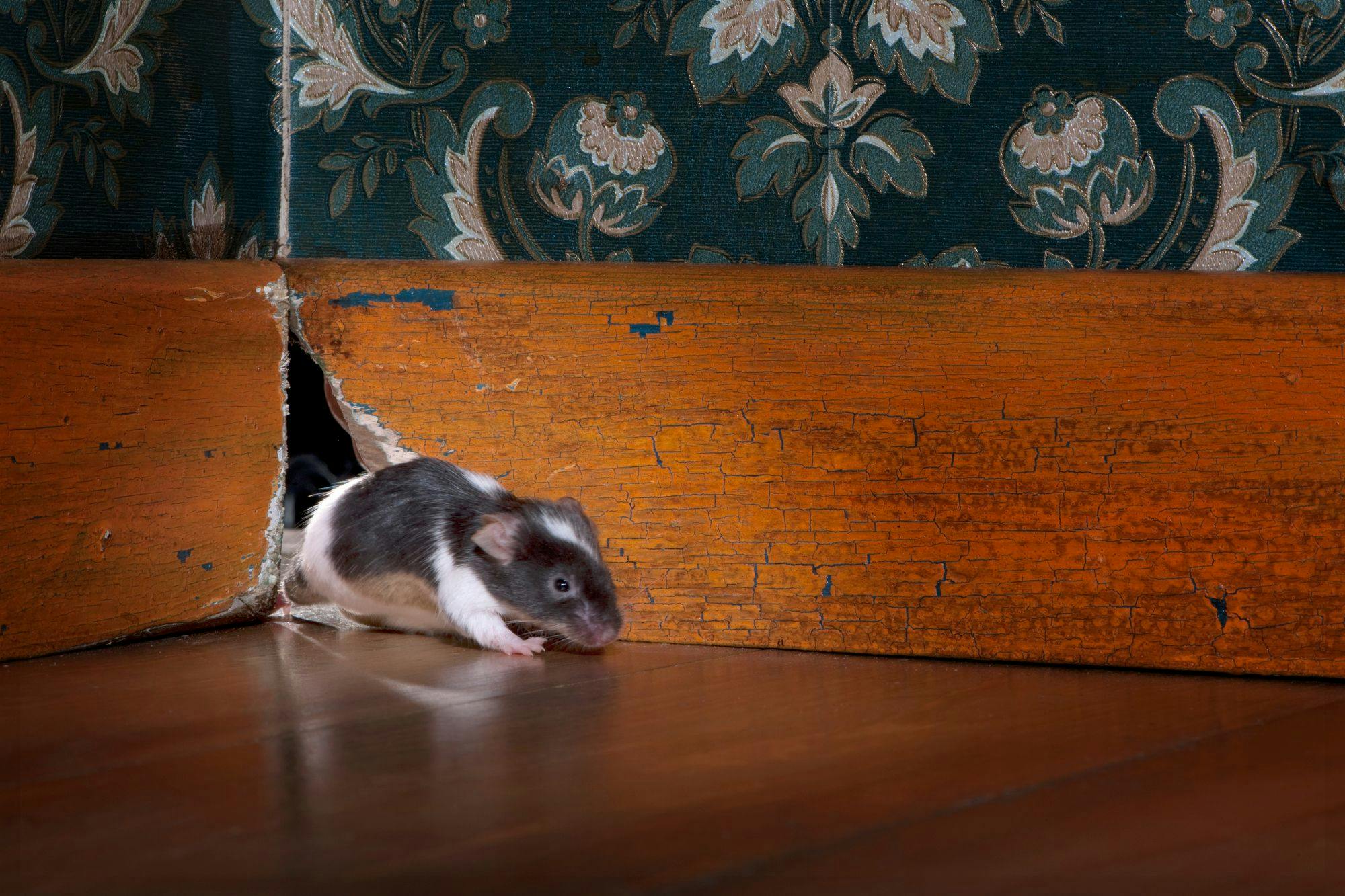Starting Your Rodent-Free Journey
9/22/2023

Overview
Learn the importance of rodent exclusion, from health risks to property damage. Discover Empire Lawn & Pest Control's humane, effective methods.
Welcome back to "The Ultimate Guide to Rodent Exclusion" series. If you've already read our introductory article, you're well aware of the pervasive and unsettling issues surrounding rodent infestations. It's a problem that goes beyond mere annoyance, reaching into the realm of health risks and significant property damage. This article aims to guide you through the first steps of addressing this issue by focusing on the vital importance of rodent exclusion. We'll also introduce Empire Lawn & Pest Control's effective and humane methodology, which will serve as a blueprint for your own rodent-free journey.
Rodent infestations are more than a minor inconvenience; they are a pressing issue that poses serious health risks and can cause considerable damage to your property. Imagine sitting down to dinner and hearing scurrying sounds in your attic or walls—it’s not just unsettling, it’s a call to action!
Importance of Rodent Exclusion
Health Risks
Rodents, such as rats and mice, are not just nuisances; they are a significant health hazard. They can carry a plethora of diseases, including hantavirus, leptospirosis, and salmonella, to name just a few. Their presence can contaminate food and water sources, posing an even greater risk to you and your family's well-being.
Diseases Carried by Rodents:
- Hantavirus: A respiratory disease that can be fatal.
- Leptospirosis: Causes a wide range of symptoms, including severe illness.
- Salmonella: A bacterial infection causing digestive issues.
Damage to Property
The physical damage caused by rodents in a household or commercial property is far from trivial. They have a natural instinct to gnaw, and their incisors never stop growing, prompting them to chew constantly to wear them down. This behavior can lead to various types of damages that have both immediate and long-term repercussions.
Types of Property Damage:
- Electrical Wiring: One of the most hazardous types of damage comes from rodents chewing through electrical wires. This not only interrupts your electrical systems, but can also lead to short circuits and fire hazards.
- Structural Damage: Rodents can burrow into wooden structures, including the framing of buildings and furniture. Over time, these structural damages can compromise the integrity of your home or building.
- Insulation: Insulation material is a favorite nesting ground for rodents. When they tear this material apart, it can result in inefficient heating and cooling, driving up your energy costs.
- Pipes and Plumbing: Rats and mice can also gnaw through plastic and sometimes even metal pipes, leading to leaks and water damage.
Economic Toll
The financial burden of dealing with a rodent infestation extends beyond the immediate cost of repairs and extermination services. Failing to deal with an infestation can have more far-reaching consequences.
Economic Factors to Consider:
- Direct Costs: These are immediate and obvious. You'll need to hire professionals for extermination and possibly also for repairs to electrical wiring, structural components, and plumbing.
- Indirect Costs: These are the hidden or less obvious costs. If you own a business, for example, a rodent infestation can drive customers away, leading to loss of revenue.
- Legal and Regulatory Consequences: In severe cases, failure to address a rodent problem could lead to lawsuits or regulatory fines, especially if you're a business owner. This not only leads to immediate financial strain but can also harm your reputation in the long run.
Philosophy Behind Rodent Exclusion
Finally, it's essential to consider the moral aspects. Many traditional methods of rodent control involve traps or poisons that can be cruel and inhumane. Rodent exclusion focuses on prevention, which is not only more ethical but often more effective in the long term.
Killing rodents may offer a quick fix but does not solve the root of the problem. Effective rodent exclusion aims for a humane and long-lasting solution, targeting the reasons why rodents enter your property in the first place.
Rodent exclusion is not just about getting rid of a current infestation—it's about prevention. As we've seen, the health risks, property damage, and economic toll can be substantial, warranting immediate action. Empire Lawn & Pest Control offers a comprehensive, humane approach to ensure that rodents are kept where they belong—outside your home. Stay tuned for our next article, which will explore the initial (and crucial) step of identifying rodent entry points. By understanding where these critters are coming from, we can develop a robust, long-lasting solution. By implementing a thoughtful, humane, and effective rodent exclusion strategy, you're investing in a safer, healthier future for both you and your property. Don’t let the problem scurry out of control!
As we embark on this detailed exploration of rodent exclusion, it's beneficial to understand the scope of what will be covered. For a comprehensive list of all the articles in this series and to help guide your journey, refer back to our introductory article: The Ultimate Guide to Rodent Exclusion.
Frequently Asked Questions
Can I contract a disease if a rodent hasn't bitten me?
- Yes, some diseases can be contracted through inhalation of particles from rodent feces, urine, or nesting materials.
How much damage can a single rodent cause?
- You'd be surprised! A single rodent can cause thousands of dollars in damage if not dealt with promptly. They can chew through electrical systems, damage furniture, and compromise structural integrity.
What are the signs of a rodent infestation?
- Common signs include droppings, gnaw marks, unusual noises, and a musky odor. If you notice these, it's time to take action.
Is rodent exclusion a one-time solution?
- While a well-executed rodent exclusion strategy can be highly effective, ongoing vigilance is necessary. Rodents are persistent creatures, and new entry points can always emerge.
Are traditional rodent traps inhumane?
- Many traditional methods, like snap traps or glue boards, can cause significant suffering to the animal. This is why exclusion techniques are often considered more humane, as they prevent rodents from entering your property in the first place.
What legal requirements should I be aware of when dealing with rodent infestations?
- Laws and regulations can vary by location, but generally, building codes, health regulations, and sometimes animal welfare laws come into play. Always consult a professional to ensure that you're in compliance.
What can I do right now to start the rodent exclusion process?
- Start by identifying and sealing off possible entry points like holes or cracks. Keep food stored securely and maintain a clean environment to make your property less attractive to rodents.
